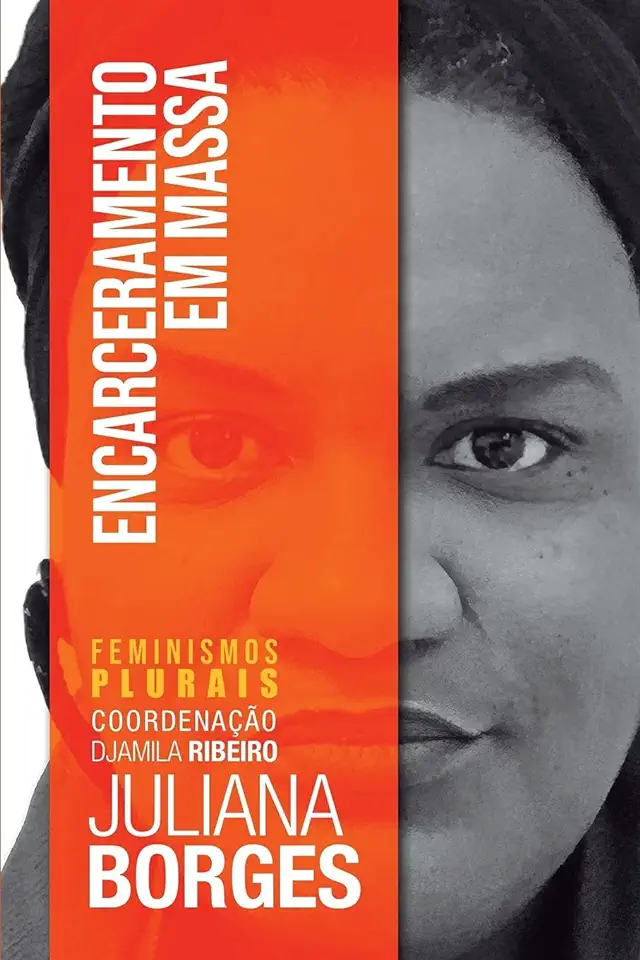
Mass Incarceration - Juliana Borges
Mass Incarceration: The Whole Story
In "Mass Incarceration: The Whole Story," Juliana Borges takes a deep dive into the history, causes, and consequences of mass incarceration in the United States. With meticulous research and compelling storytelling, Borges argues that mass incarceration is not only a moral failure but also a social and economic disaster.
A History of Mass Incarceration
Borges begins by tracing the roots of mass incarceration back to the Reconstruction era, when Southern states enacted Black Codes to control and disenfranchise African Americans. These laws laid the foundation for the criminalization of poverty and the over-policing of minority communities.
In the 1970s, the "War on Drugs" led to a dramatic increase in incarceration rates. Despite the fact that drug use is roughly equal across racial groups, African Americans are far more likely to be arrested, convicted, and sentenced to prison for drug offenses.
The Causes of Mass Incarceration
Borges identifies a number of factors that have contributed to mass incarceration, including:
- The War on Drugs: The War on Drugs has been a major driver of mass incarceration, particularly for African Americans. Despite the fact that drug use is roughly equal across racial groups, African Americans are far more likely to be arrested, convicted, and sentenced to prison for drug offenses.
- Mandatory Minimum Sentencing Laws: Mandatory minimum sentencing laws require judges to impose a minimum sentence for certain crimes, regardless of the circumstances of the case. These laws have led to longer prison sentences for nonviolent offenses, and they have disproportionately impacted minority communities.
- The Prison Industrial Complex: The prison industrial complex is a term used to describe the network of private prisons, government agencies, and corporations that profit from mass incarceration. This complex has a vested interest in keeping prisons full, and it has lobbied for policies that have led to increased incarceration rates.
The Consequences of Mass Incarceration
Mass incarceration has had a devastating impact on individuals, families, and communities. Some of the consequences of mass incarceration include:
- The erosion of civil rights: Mass incarceration has led to the erosion of civil rights for people who have been convicted of crimes. For example, many people who have been convicted of felonies lose their right to vote, to hold public office, and to serve on juries.
- The destruction of families: Mass incarceration has torn families apart. When a parent is incarcerated, children are more likely to experience poverty, educational problems, and behavioral problems.
- The economic burden: Mass incarceration is a huge economic burden for taxpayers. The cost of building and operating prisons is enormous, and the cost of providing healthcare and other services to prisoners is also high.
The Way Forward
Borges concludes by arguing that mass incarceration is a moral, social, and economic disaster. She calls for a number of reforms, including:
- Ending the War on Drugs: The War on Drugs has been a major driver of mass incarceration, and it should be ended.
- Reforming Mandatory Minimum Sentencing Laws: Mandatory minimum sentencing laws have led to longer prison sentences for nonviolent offenses, and they should be reformed.
- Reducing the Prison Population: The United States has the highest incarceration rate in the world, and the prison population should be reduced. This can be done by releasing nonviolent offenders, reducing sentences for drug offenses, and expanding alternatives to incarceration.
"Mass Incarceration: The Whole Story" is a powerful and persuasive indictment of mass incarceration. Borges provides a comprehensive overview of the history, causes, and consequences of mass incarceration, and she makes a compelling case for reform. This book is essential reading for anyone who wants to understand one of the most pressing social justice issues of our time.
Why You Should Buy This Book
"Mass Incarceration: The Whole Story" is a must-read for anyone who wants to understand one of the most pressing social justice issues of our time. Borges provides a comprehensive overview of the history, causes, and consequences of mass incarceration, and she makes a compelling case for reform. This book is essential reading for anyone who cares about justice, equality, and human rights.
Here are a few reasons why you should buy this book:
- It's well-written and engaging. Borges is a gifted storyteller, and she brings the issue of mass incarceration to life with her vivid writing and compelling anecdotes.
- It's informative and thought-provoking. Borges provides a wealth of information about mass incarceration, and she challenges readers to think critically about the causes and consequences of this issue.
- It's inspiring and empowering. Borges's book is a call to action, and it inspires readers to get involved in the fight for criminal justice reform.
If you care about justice, equality, and human rights, then you need to read "Mass Incarceration: The Whole Story." This book will change the way you think about mass incarceration, and it will inspire you to take action to make a difference.